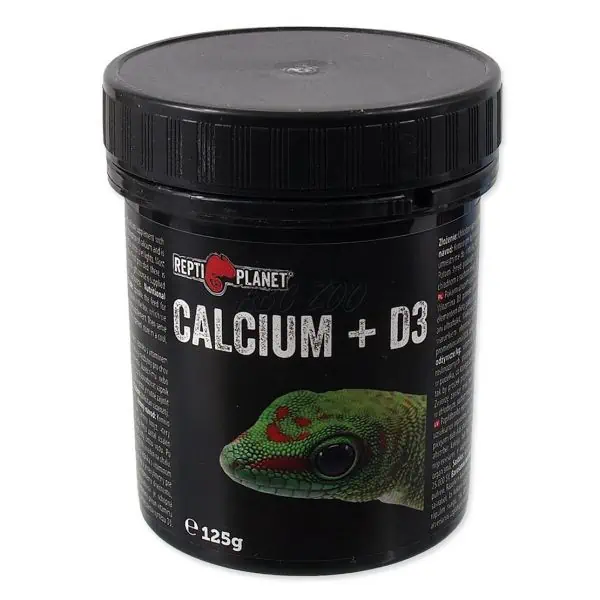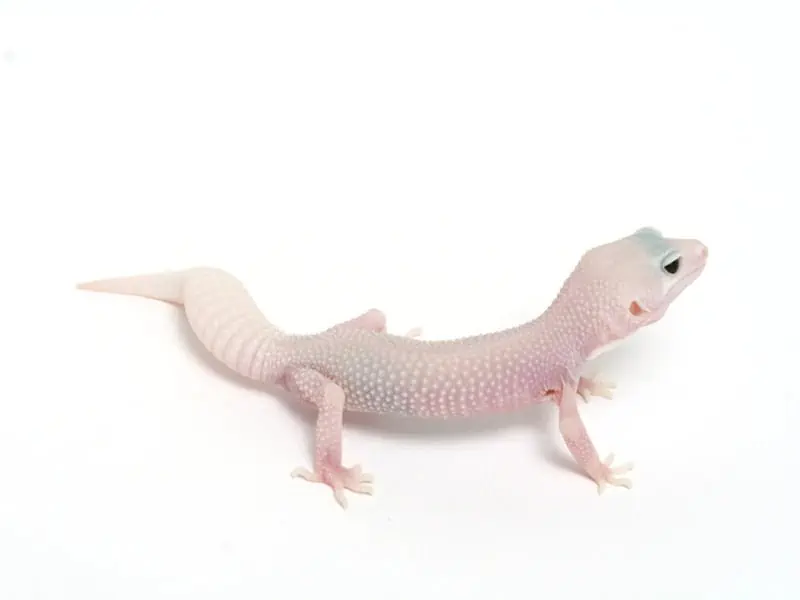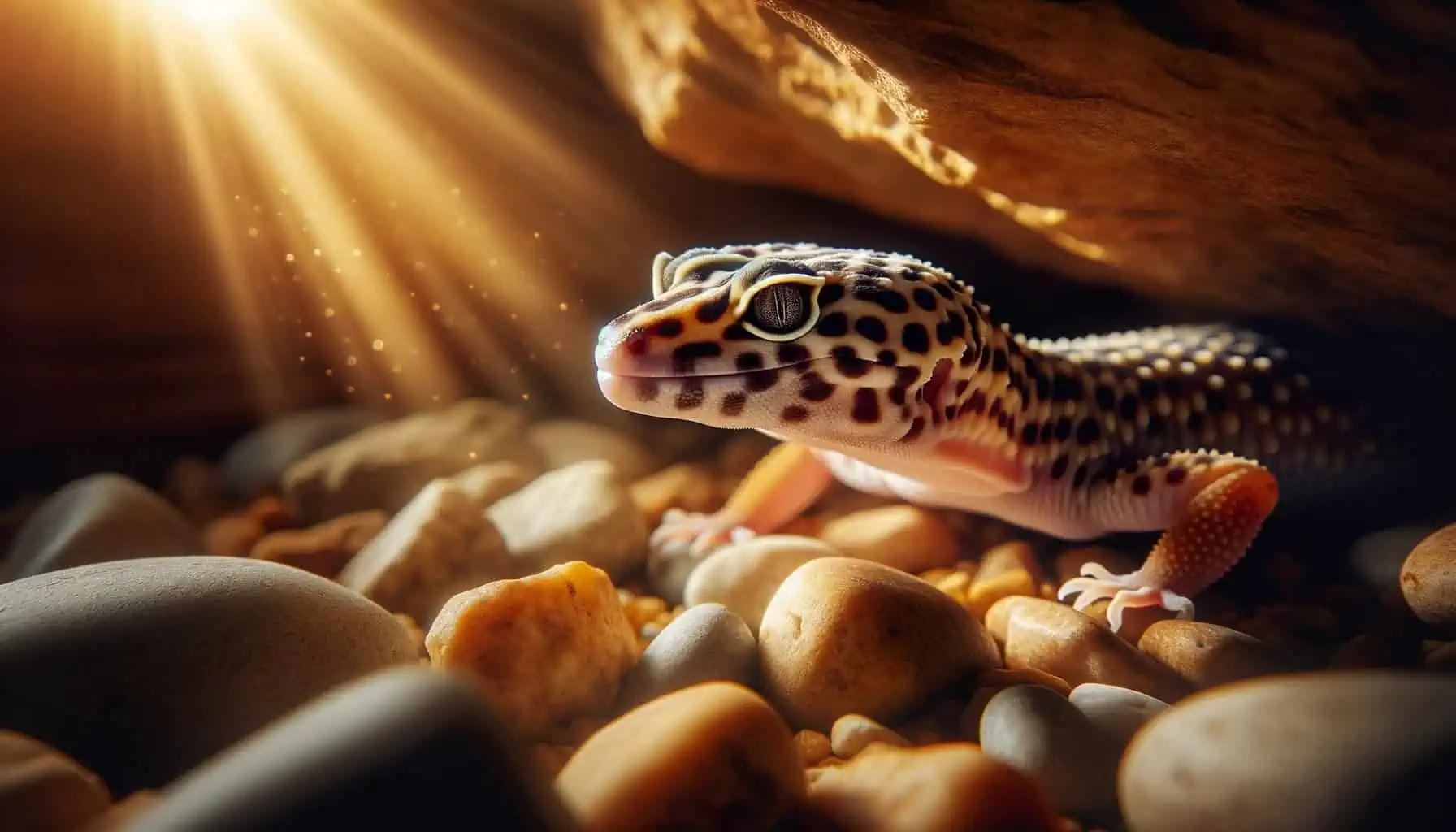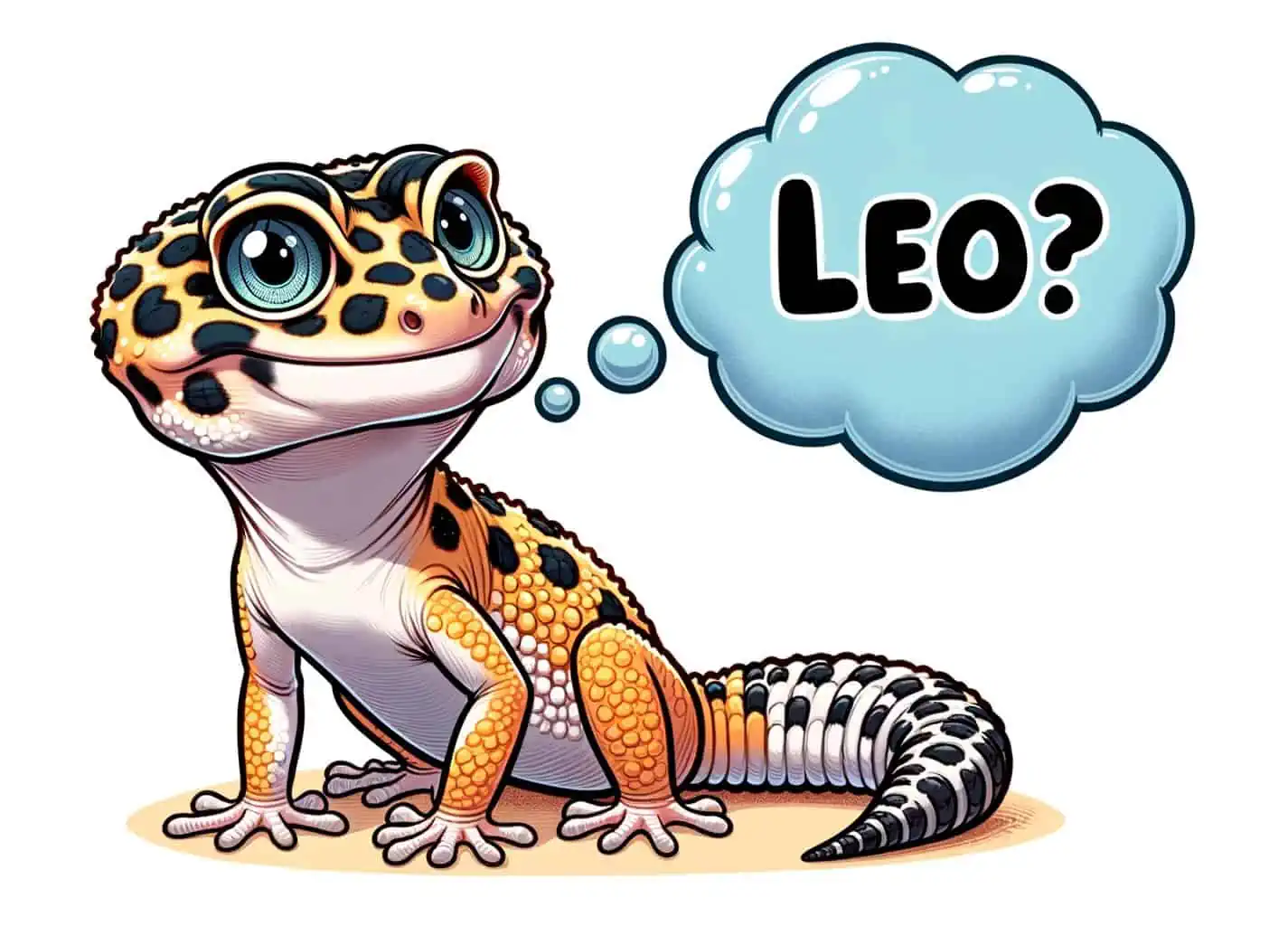A proper diet is vital to the health and longevity of all living creatures, including the vibrant Tokay Gecko. Known for their striking coloration and loud vocalizations, these fascinating reptiles have won the hearts of enthusiasts around the world.
However, taking care of a Tokay Gecko involves more than just providing it with food and shelter. A balanced diet, enriched with necessary vitamins and minerals like calcium, plays an integral role in their well-being.
This article will delve deep into the significance of calcium and vitamins in a Tokay Gecko’s diet, providing insights and practical advice on how to maintain your little companion’s health and vibrancy.
Whether you’re a beginner or an experienced reptile owner, gaining a comprehensive understanding of these dietary essentials will empower you to offer the best care possible to your Tokay Gecko.
A Tokay Gecko’s Dietary Needs
To provide the best care for your Tokay Gecko, you first need to understand their unique dietary needs. In the wild, Tokay Geckos are insectivores. This means that their diet predominantly consists of various types of insects, such as crickets, roaches, and mealworms. However, in captivity, providing a diet based solely on these elements can lead to nutritional deficiencies. Therefore, it’s essential to consider supplementing the diet with essential nutrients, namely calcium and vitamins.
Calcium and vitamins play a crucial role in ensuring your gecko’s overall health and longevity. They participate in a wide array of biological functions, such as bone formation, metabolism regulation, and immune function. And while insects do contain certain levels of these nutrients, it’s not enough to fulfill your gecko’s needs.
For instance, the calcium to phosphorus ratio in a Tokay Gecko’s diet is of paramount importance. Insects generally contain more phosphorus than calcium. When the diet is deficient in calcium, the gecko’s body will start drawing calcium from its bones to maintain the necessary physiological functions, which can lead to severe health problems.
Similarly, vitamins, especially vitamin D3, are also vital for these reptiles. Vitamin D3 aids in the absorption of calcium and phosphorus from the diet, and without it, calcium could not fulfill its role efficiently.
The Crucial Role of Calcium in a Tokay Gecko’s Diet
As an essential mineral in any reptile’s diet, calcium plays a multitude of roles in a Tokay Gecko’s body. Most importantly, it’s crucial for maintaining healthy bones and teeth. A Tokay Gecko’s skeleton forms the core of its physical structure, providing support and protection for its vital organs. Without an adequate amount of calcium, the health and strength of this essential framework can become compromised.
In addition to supporting skeletal health, calcium is involved in several other physiological processes. It’s essential for muscle contraction, including the heart muscle, aiding in the overall movement and agility of these active climbers. Moreover, it plays a role in nerve transmission, ensuring that your Tokay Gecko’s reflexes and responses are at their best. It’s also a part of the blood clotting process, which is vital for wound healing.
However, one crucial thing to understand about calcium is that it doesn’t act alone. It works in conjunction with other nutrients, most notably phosphorus and vitamin D3, to be effectively used by the body. For example, without vitamin D3, a gecko’s body can’t absorb calcium efficiently, no matter how much of it is present in the diet.
The Significance of Vitamins for a Tokay Gecko
Just as calcium is important for your Tokay Gecko’s health, so are vitamins. In fact, some vitamins are directly involved in the utilization of calcium and other minerals in the body. One such critical vitamin is Vitamin D3, which plays a crucial role in calcium absorption and metabolism. Without sufficient Vitamin D3, the calcium present in the diet will not be adequately utilized, leading to health problems similar to those caused by calcium deficiency.
Vitamin D3 is primarily obtained through exposure to sunlight or artificial UVB light, which triggers its synthesis in the body. In the wild, Tokay Geckos get plenty of this by basking in the sun. However, in captivity, they often lack sufficient exposure to natural or artificial UVB light, making it necessary to supplement their diet with Vitamin D3.
Another important group of vitamins for your Tokay Gecko are the B-vitamins, including thiamine (B1), riboflavin (B2), niacin (B3), and others. These vitamins are crucial for a variety of physiological processes including metabolism of food, nervous system function, and production of red blood cells.
Vitamin A is another essential nutrient for these geckos. It plays an important role in maintaining healthy skin, vision, and immune function. However, care should be taken not to overdose Vitamin A as it is fat-soluble and can accumulate in the body leading to toxicity.
Balancing Calcium and Vitamins in the Tokay Gecko’s Diet: A Holistic Approach
Balancing calcium and vitamins in your Tokay Gecko’s diet can seem like a tricky task, but with a little knowledge and practice, it becomes second nature. One key concept to understand is the ratio between calcium and phosphorus in your gecko’s diet. Ideally, this should be around 2:1 in favor of calcium. Since most insects that geckos eat contain more phosphorus than calcium, dusting them with a calcium supplement is usually necessary.
When it comes to vitamins, the key is diversity. Providing a variety of feeder insects can ensure a wider range of vitamins and other nutrients. It’s also recommended to use a multivitamin supplement, typically once or twice a week depending on your gecko’s age and health status. Always make sure to follow the manufacturer’s instructions or your vet’s advice to avoid overdosing.
Vitamin D3 deserves special attention due to its role in calcium absorption. As previously mentioned, the best source of Vitamin D3 for geckos is UVB light. While providing a UVB light source for your gecko is recommended, dietary supplementation is often still necessary, especially in the absence of sufficient UVB exposure. Most commercial calcium supplements for reptiles also contain Vitamin D3 for this reason.
Moreover, feeding your Tokay Gecko with gut-loaded insects is another great way to enhance its vitamin and mineral intake. Gut-loading is the process of feeding nutritious foods to the insects before offering them to your gecko. This way, the insects are loaded with beneficial nutrients, thereby improving the quality of your gecko’s diet.
Potential Consequences of Calcium and Vitamin Deficiencies in Tokay Geckos
Not providing your Tokay Gecko with adequate calcium and vitamins can have serious health implications. Calcium deficiency, for instance, can lead to a condition known as Metabolic Bone Disease (MBD). MBD is one of the most common health problems in captive reptiles, and it manifests as softening of the bones, skeletal deformities, lethargy, and in severe cases, it can be life-threatening.
Moreover, calcium is involved in muscle function, including the heart. A deficiency can lead to impaired mobility and other health issues related to muscle function, such as abnormal heart rhythms.
Vitamin deficiencies can also have severe consequences. A deficiency in Vitamin D3 can result in similar symptoms to calcium deficiency, given its role in calcium absorption. Symptoms of Vitamin D3 deficiency may include reduced appetite, lethargy, and weakened bones.
On the other hand, deficiency in Vitamin A can lead to problems with skin shedding, a decrease in reproductive health, and susceptibility to infections due to impaired immune function. B-vitamin deficiencies can also have a range of effects, from loss of appetite and lethargy to neurological symptoms such as seizures.
How to Ensure Your Tokay Gecko Gets Enough Calcium and Vitamins
Ensuring your Tokay Gecko gets enough calcium and vitamins requires a holistic approach that considers the dietary, environmental, and behavioral needs of your pet. Here are some practical tips to help you provide your gecko with a balanced diet:
Use a Calcium Supplement: Use a high-quality calcium supplement to dust the insects before feeding them to your gecko. This ensures that they get enough calcium relative to phosphorus. Also, ensure the calcium supplement contains Vitamin D3, particularly if your gecko doesn’t have access to UVB light.
Provide a Multivitamin Supplement: Besides a calcium supplement, also consider providing a multivitamin supplement. This will ensure that your gecko gets a variety of necessary vitamins. Follow the product instructions or consult your vet for dosage guidance.
Offer a Variety of Insects: Different insects have different nutrient profiles. By offering a variety of insects, you increase the range of nutrients your gecko consumes. This could include crickets, mealworms, roaches, and other suitable feeder insects.
Practice Gut-loading: As previously discussed, gut-loading is feeding nutritious foods to feeder insects. This practice enhances the nutritional value of the insects and ultimately benefits your gecko.
Ensure Proper UVB Exposure: If possible, provide a UVB light source for your gecko. This allows your gecko to naturally produce Vitamin D3, which aids in calcium absorption.
Consult with a Reptile Veterinarian: Regular check-ups with a reptile veterinarian can help ensure your gecko’s health is on track. They can offer guidance tailored to your pet’s specific needs, and help diagnose and address any health issues early on.
Conclusion
Ensuring the proper intake of calcium and vitamins is crucial for the health and well-being of your Tokay Gecko. As a responsible pet owner, understanding the significance of these nutrients and the implications of their deficiencies is essential. From supporting bone health to aiding in various physiological processes, calcium and vitamins are indispensable components of a balanced diet. By providing a variety of insects, appropriately using supplements, ensuring proper UVB exposure, and regular vet consultations, you can keep your Tokay Gecko healthy and vibrant.
Remember, each Tokay Gecko is unique, and what works for one might not work for another. Regular observation and adjustments to your gecko’s dietary needs, based on their age and health status, are key.
Taking care of a Tokay Gecko can be a rewarding experience. As you continue to provide your pet with the nutrients they need, you’ll get to watch them thrive, and in return, they’ll fill your life with joy and fascination. Happy gecko parenting!
FAQs
How often should I feed my Tokay Gecko?
Young Tokay Geckos should be fed daily due to their high metabolic rates and growth needs. Adult geckos can be fed every other day. Always remove uneaten food after feeding time to maintain hygiene.
How much calcium supplement should I use?
This can vary based on the age and health of your gecko. Generally, insects should be lightly dusted with calcium supplement before feeding. Always follow the manufacturer’s instructions or consult your vet.
What are some signs of calcium deficiency in my Tokay Gecko?
Common signs include weak or soft bones, difficulty moving, reduced appetite, and in severe cases, deformities and fractures. If you observe any of these signs, consult a reptile vet immediately.
Can I use a regular light bulb for my gecko’s UVB needs?
No, regular light bulbs do not produce UVB radiation. You need a special UVB bulb, and it needs to be within a certain distance from your gecko’s basking area.
Can I feed my Tokay Gecko only one type of insect?
While it’s possible, it’s not recommended because different insects offer different nutrients. Providing a variety increases the range of nutrients your gecko receives.
Can I use sunlight as a source of Vitamin D3 for my gecko?
Yes, natural sunlight is an excellent source of Vitamin D3. However, ensure it’s indirect sunlight to avoid overheating and dehydration.
How do I know if my Tokay Gecko is getting enough vitamins?
Signs of good health include regular feeding and defecation, clear eyes, healthy skin, and active behavior. Regular vet check-ups are also a good way to ensure your gecko is healthy.
Can I give my Tokay Gecko fruits and vegetables?
Tokay Geckos are insectivores, and their diet should primarily consist of insects. Fruits and vegetables are not necessary and could lead to health issues if fed regularly.
Can I give my Tokay Gecko dairy or other calcium-rich foods?
No, Tokay Geckos cannot digest dairy or other non-insect foods. Stick to insects and reptile-approved calcium and vitamin supplements.
What if my Tokay Gecko refuses to eat the dusted insects?
Try using less dusting powder, or change the type of insect you’re feeding. If the problem persists, consult a vet for advice.





